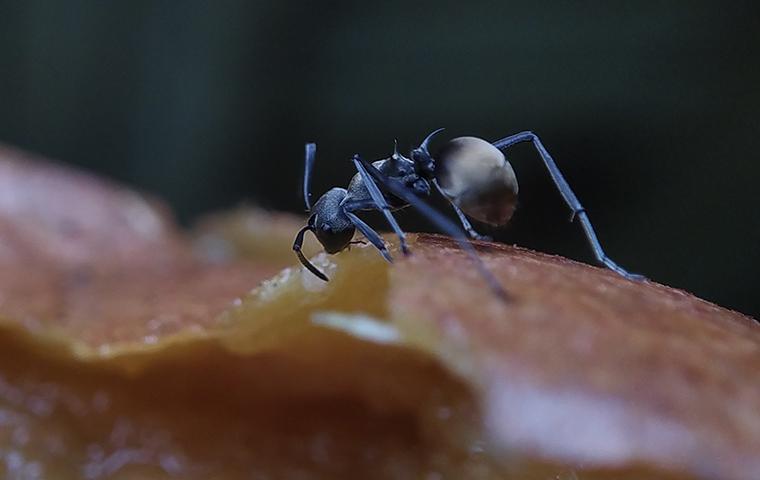If their name implies anything, it's that you definitely don't want odorous house ants in your Virginia home! Find out where this species gets its name, why they are attracted to residential properties, what to do about them if they infest, and how to prevent them by reading the information below!

What are odorous house ants?
Odorous house ants are a small ant species growing between 1/16 to 1/8 of an inch long. They have brown or black coloring and an unevenly shaped thorax.
This species is native to the United States and falls under the sugar ant category, which means they are attracted to sugar and sweet foods. Like others, odorous house ants are social insects, so they must live in a colony to survive as they rely on each individual to play a specific role.
So, how does this species get its name? The answer to this question will become apparent as soon as you crush them, and they emit a rotting coconut smell!
Are odorous house ants dangerous?
Although they create an unpleasant scent, odorous house ants are nuisance pests because they don't spread diseases, attack people, or cause damage. However, they may still be an issue as they get into food and contaminate it.
Plus, ant infestations usually occur in large numbers, which can easily be overwhelming and stressful for anyone to deal with, and odorous house ants are no exception.
Why do I have an odorous house ant problem?
Believe it or not, crushing these ants doesn't just produce a bad smell but can also worsen an infestation. The odor they create is to deter predators and alert the rest of the colony of dangers. So more individuals will follow to protect the colony as a whole.
They also use pheromones to communicate about food. If a few of these ants get into your home and find a good food source, they will tell the others, who will follow. And the food is the main reason why odorous house ants and most other species become a problem.
Where will I find odorous house ants?
Odorous house ants can build their nest outside and inside. They like warm and damp conditions and can create their nests underneath the flooring, inside walls, and close to pipes and heaters.
Because they are sugar ants, you will likely see them in your kitchen, where they have access to a buffet of crumbs and food residue.
How do I get rid of odorous house ants?
It may be tempting to try and handle an odorous house ant infestation on your own, but doing so may likely cost you more stress than necessary. To avoid this, work with All Pest Control & Solutions!
We offer three different residential pest control plans to choose from, so there is something to meet everyone's needs and budget. Give us a call at All Pest Control & Solutions to learn more!
How can I prevent odorous house ants in the future?
You can prevent future infestations of odorous house ants by:
-
Keeping your yard clear of debris like dead trees, stumps, and leaves.
-
Properly store firewood.
-
Using trash cans on the interior and exterior with a tight-fitting lid.
-
Cleaning the kitchen and eating areas to remove food debris, storing food in sealed containers, and clearing dirty dishes and pet food at night.
-
Sealing cracks and crevices in the foundation, around windows and doors, and where utility lines enter the structure.
Keep these smelling insects out of your home by contacting All Pest Control & Solutions about odorous house ants.
Residential Services

Home Pest Control
Convenient for your schedule & effective against pests, our Home Protection plans protect your home and family!
Learn More >

Bed Bug Control
Innovative bed bug treatments designed to quickly, effectively and discreetly solve homeowners' bed bug problems.
Learn More >

Termite Control
All Pest's effective termite control treatments prevent wood-destroying termites from causing damage to your home.
Learn More >

Rodent Control
Get rid of rats and mice in your home with a comprehensive rodent control solution from All Pest.
Learn More >

Moisture Control
Using moisture control can help you avoid potential issues in your home, such as mold, wood rot, and termites.
Learn More >

Mosquito Control
Rid your property of those irritating, biting mosquitoes with All Pest's seasonal mosquito control.
Learn More >

Real Estate Inspections
All Pest Control's technicians are certified to identify and report signs conducive to wood-destroying insects.
Learn More >


